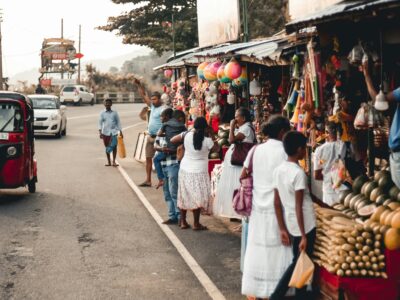04-04-2024
Shahad Ghannam
Legal Human Rights Researcher,
Global Human Rights Defence
In the run-up to the 2024 Lok Sabha elections in India, the lower house of parliament, a troubling rise in human rights violations has drawn international concern from United Nations experts and other international human rights organizations. These reports collectively highlight an array of human rights violations and attacks, particularly targeting minorities, the media, and civil society, casting a long shadow over the democratic process in the world’s largest democracy.
United Nations experts have issued a stark warning, highlighting an alarming pattern of attacks on religious, racial, and ethnic minorities, alongside women, girls, and civil society actors. These include dehumanizing rhetoric, discrimination, arbitrary killings, and acts of violence by vigilante groups. Additionally, the targeted demolitions of homes, enforced disappearances, intimidation, and arbitrary detention of human rights defenders and journalists have been specifically pointed out by media, and civil society. They stress the urgent need for India to adhere to its human rights obligations and reverse the erosion of rights ahead of the election period from April 19 to June 1. The UN’s 78 communications to India have seen a low level of response in the past five years with only 18 of them receiving a reply. Similarly, 445 cases of enforced disappearances remain pending, with no information on the fate and whereabouts of the alleged victims, and 15 active pending requests, since 2017, for UN Special Procedure visits for the examination, reporting, and advising on human rights issues.
Amnesty International has sounded the alarm over what it describes as a “crisis point” in the “crackdown on opposition” and dissent in India. The arrest of Arvind Kejriwal, a prominent opposition leader from the Aam Aadmi Party, and the freezing of the Indian National Congress’s, the largest opposition party, bank accounts exemplify the Bharatiya Janata Party (BJP) led government’s harsh stance against peaceful dissent. Additionally, this crackdown, according to Amnesty, reveals a blatant disregard for human rights and the rule of law, highlighting the systematic use of financial and investigative powers to suppress opposition voices and civil society.
There have also been reports on the tightening of control over the internet and social media, along with the censorship of content critical of the government, posing significant challenges to free speech and political engagement. The reports collectively paint a troubling picture of the state of democracy and human rights in India ahead of the Lok Sabha elections. They underscore the government’s willingness to deploy state resources to influence the electoral outcome in favour of the ruling BJP. The suppression of dissent, control over information, and targeting of opposition create an uneven playing field that challenges the fairness and integrity of the electoral process. A free and fair election requires an environment where individuals can freely discuss politics, express their personal views, and access information about both the government and the opposition without fear of retribution.
As a party, and ratifier, to key international human rights treaties such as the International Covenant on Civil and Political Rights (ICCPR) and the International Covenant on Economic, Social and Cultural Rights (ICESCR), India has legal obligations to ensure the rights to freedom of expression, assembly, and association, as well as the rights of minorities. These obligations require the state to protect individuals from arbitrary arrest, censorship, and discrimination, and to ensure the availability of free and fair electoral processes. The allegations of censorship, crackdown on opposition, and suppression of dissent reported could be interpreted as violations of Articles 19 (freedom of expression) and 21 (right to peaceful assembly) of the ICCPR, putting India at risk of breaching its international legal obligations. Moreover, the UN Human Rights Committee’s General Comment No. 25 on the right to participate in public affairs, voting rights, and the right of equal access to public service underscores the importance of these rights in the context of genuine democratic governance. The lack of substantive response to UN communications and the pending cases of enforced disappearances further exacerbate concerns regarding India’s adherence to its duty to investigate and remedy human rights violations.
The current human rights situation in India, as detailed in these reports, raises serious concerns about the ability of the Indian electorate to participate in such an environment. As the international community watches closely, there is a pressing need for India to take meaningful steps to address these concerns, ensuring that the upcoming elections reflect the will of the people in a democratic and fair manner.
Sources and further readings:
‘India: UN Experts Urge Corrective Action to Protect Human Rights and End Attacks’ (OHCHR, 7 March 2024) https://www.ohchr.org/en/press-releases/2024/03/india-un-experts-urge-corrective-action-protect-human-rights-and-end-attacks (accessed 4 April 2024).
India: Crackdown on Opposition Reaches a Crisis Point Ahead of National Elections’ (Amnesty International, 22 March 2024) https://www.amnesty.org/en/latest/news/2024/03/india-crackdown-on-opposition-reaches-a-crisis-point-ahead-of-national-elections/ (accessed 4 April 2024).
Kian Vesteinsson, ‘Ahead of Landmark Elections, India’s Government Silences Dissent’ (Freedom House, 14 March 2024) https://freedomhouse.org/article/ahead-landmark-elections-indias-government-silences-dissent (accessed 4 April 2024).
‘UN Experts Raise Alarm on Rights Violations in India Ahead of Elections’ (ILKHA, 8 March 2024) https://ilkha.com/english/world/un-experts-raise-alarm-on-rights-violations-in-india-ahead-of-elections-382348 (accessed 4 April 2024).
‘India’s 2024 General Election: What to Know’ (Council on Foreign Relations, 2 April 2024) https://www.cfr.org/expert-brief/indias-2024-general-election-what-know (accessed 4 April 2024).







Comments